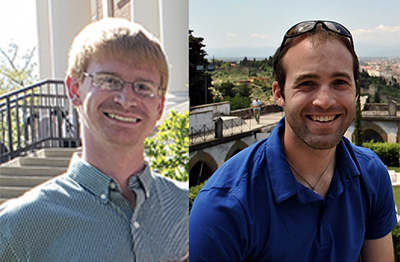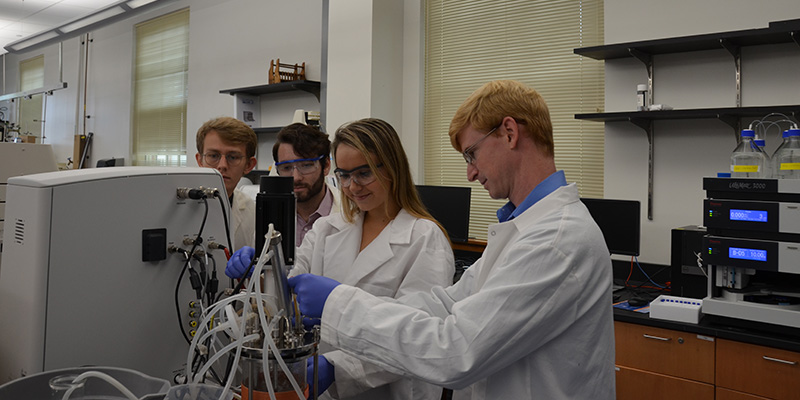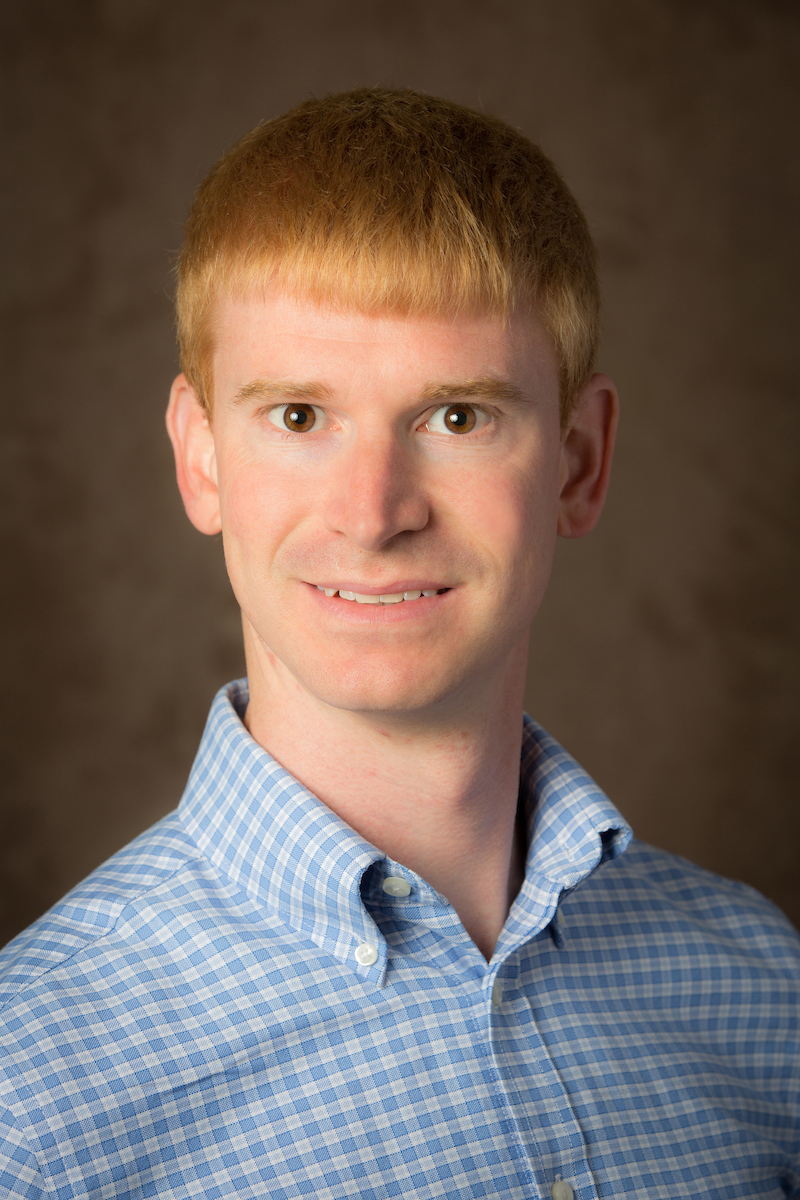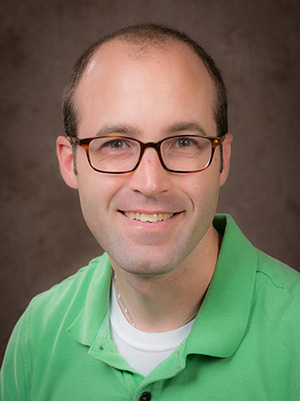

Miami University researchers collaborate with PsyBio Therapeutics
They will biosynthetically produce psilocybin to help treat mental health challenges

Andrew Jones
Miami University and PsyBio Therapeutics Inc. are collaborating to develop a new and exciting class of molecules to treat mental health challenges such as depression, anxiety, PTSD, and substance dependency.
PsyBio has agreed to a research sponsorship with Miami University over the next two years to further develop a platform technology that enables the biosynthesis of psilocybin and other psychoactive molecules that occur naturally in certain plants and fungi. Additionally, Miami has granted PsyBio a global exclusive license to the technology generated from such research.
PsyBio is in the business of pioneering the next generation of psychoactive compounds, called tryptamines, which are being studied to reverse the course of disease by rewiring the brain through contemplation and a change of perception. Many tryptamine compounds, also known as psychedelics, hallucinogens, and entheogens, have been receiving international recognition for their therapeutic potential. These compounds act on and increase synaptic and neurotransmitter activity in the brain region responsible for stimulating the reward system.
In addition to being able to offer a unique therapeutic response for a multitude of disorders, tryptamines are documented as drugs of low abuse potential and minimal lethal consequences in comparison to substances such as morphine, cocaine, and alcohol. There are currently dozens of clinical trials dosing psychedelic-inspired medications and hundreds of millions of dollars in investment capital financing the industry.
“We are excited to be working in collaboration with such a prestigious research university,” stated Evan Levine, Chief Executive Officer of PsyBio Therapeutics. “PsyBio Therapeutics was launched in response to the growing unmet medical need and demand to offer a new paradigm for the treatment of mental health issues and other health care challenges. The therapeutic candidates that we are developing are intended to heal the patient and treat the disease, in comparison to many drugs on the market that only address the symptoms and not the underlying cause.”

Matthew McMurray
A team of students helped develop the technology
The technology developed at Miami University was invented by a team of students in the lab of J. Andrew Jones, assistant professor in Miami’s department of chemical, paper, and biomedical engineering. Through novel application of pathway optimization and metabolic engineering principles, Jones and his team of students discovered a way to sustainably produce promising drug candidates by genetically engineered bacteria. In order to mass-produce tryptamines from their natural host, extensive real estate and time would be required; further current chemical synthetic methods are very expensive, technically intricate, and have significant waste disposal issues.
Jones is collaborating with Matthew McMurray, assistant professor of psychology at Miami. His research area is at the intersection of pharmacology, developmental and cognitive neuroscience.
“Our collaboration with PsyBio Therapeutics will enable us to not only speed up the development of new bioactive compounds in the lab, but also facilitate the realization of our ultimate goal – the commercial development of a pharmaceutical product that can help those struggling with mental health disorders,” said Jones, who also serves as the Chairman of the Scientific Advisory Board at PsyBio.
Jones’s psilocybin research result is a significant step toward demonstrating the feasibility of producing this drug economically from a biological source. Their initial research findings are published in the journal Metabolic Engineering titled, “In vivo production of psilocybin in E. coli.”

Members of the research team are: (L to R) Andrew Jones, Lexie Adams, Tom Wei, Nick Kaplan, Alexis Enacopol, Chantal Monnier, John Brinton.
